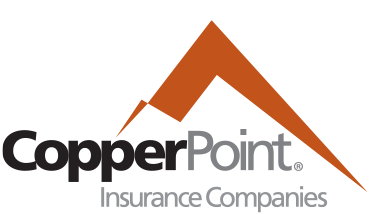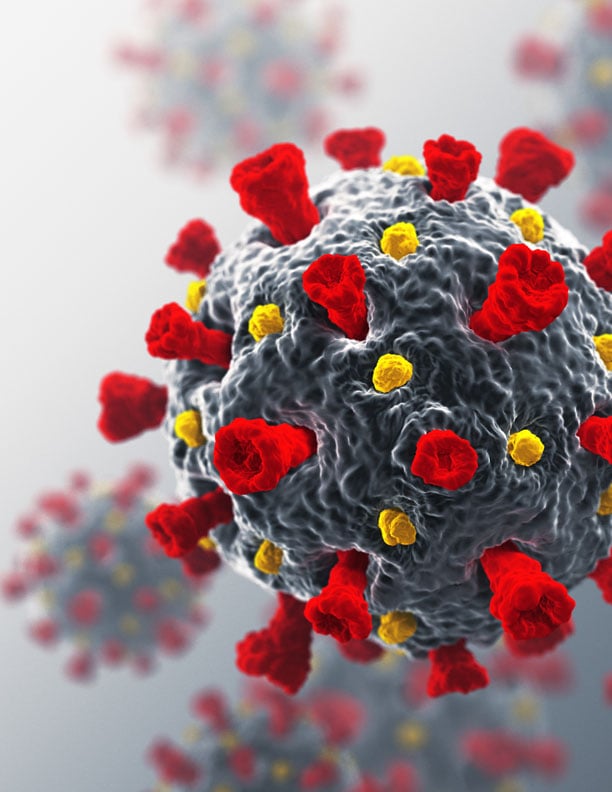COVID-19 is a respiratory illness that can spread from person to person. The virus that causes COVID-19 is a novel Coronavirus that was first identified during an investigation into a December 2019 outbreak in Wuhan, China.
Many policyholders are interested to know if their workers’ compensation coverage will apply if their workers contract COVID-19. Whether workers’ compensation coverage will apply to any illness is dependent on the specific facts of each case.
Generally speaking, workers’ compensation does not cover ordinary diseases that the general public is exposed to outside of the employment setting. However, there may be facts and circumstances associated with a particular claim that connect the illness to a particular workplace event or exposure. We ask that you continue to report all suspected occupational related illnesses and injuries to us.
This is an emerging, rapidly evolving situation. We recommend that you closely monitor the Centers for Disease Control (Coronavirus Disease (COVID-19) | Occupational Safety and Health Administration (osha.gov)) and local health departments for the most current information.
The information below is interim guidance and is based on what is currently known as of this date about COVID-19. This guidance also provides planning considerations if there is an outbreak of COVID-19 in your community.
Specific guidance for the healthcare industry can be found at:
California-specific guidance:
- https://www.dir.ca.gov/dosh/coronavirus/
- https://www.cdph.ca.gov/Programs/CID/DCDC/Pages/Guidance.aspx
The following interim guidance for general industry employers may help prevent workplace exposures to acute respiratory illnesses, including COVID-19, in non-healthcare settings.
General steps that should be implemented immediately:
- Strongly encourage employees with symptoms of acute respiratory illness to stay home, and not return until they are free of a fever, without taking fever reducing medication, and any other symptoms, for at least 24-hours.
- Have your employees notify their supervisors and stay at home if they are sick.
- Check with any temporary or contract labor firms you work with to ensure they are taking appropriate actions.
- Regarding COVID-19 suspected illness, do not require a note from a healthcare professional to validate employee’s sick time.
- Ensure that your sick leave policies are flexible and consistent with public health guidance and that employees are aware of these policies.
- Implement flexible policies that allow employees to stay at home to care for sick relatives/dependents.
- As always, ensure that your employees know about their sick leave, vacation, and family medical leave policies and they are implemented consistently.
- If an employee shows signs of respiratory illness, separate them from other employees, and send them home immediately.
- Promote and support respiratory etiquette and hand hygiene for all employees.
- Place these CDC posters that encourage staying home when sick, cough and sneeze etiquette, and hand hygiene at the entrance to your workplace and in other workplace areas where they are likely to be seen.
- Provide tissues and no-touch disposal receptacles for use by employees.
- Instruct employees to clean their hands often with soap and water for at least 20 seconds. Alcohol-based hand sanitizers that contains at least 60-95% alcohol can also be used. Soap and water should be used for hand cleaning if hands are visibly dirty.
- Provide soap and water and alcohol-based hand rubs in the workplace. Ensure that adequate supplies are maintained. Place hand rubs in multiple locations or in conference rooms to encourage hand hygiene.
- Visit the CDC coughing and sneezing etiquette and clean hands webpage for more information.
- Perform routine environmental cleaning.
- Routinely clean all frequently touched surfaces in the workplace, such as workstations, countertops, and doorknobs. Use the cleaning agents that are usually used in these areas and follow the directions on the label.
- Provide disposable wipes so that commonly used surfaces (for example, doorknobs, keyboards, remote controls, desks) can be wiped down by employees before each use.
- Be well informed about employee travel and regularly monitor CDC COVID-19 travel advisories at https://www.cdc.gov/coronavirus/2019-ncov/travelers/index.html
Employers may also want to consider creating an infectious disease outbreak response plan. It is important that you are ready to implement strategies to protect your workforce from COVID-19 while ensuring continuity of your business operations.
The CDC website contains recommendations for creating an infectious disease outbreak response plan to be followed in the event of an outbreak. According to the CDC, when developing a plan, employers should keep the following in mind:
Ensure the plan is flexible.
- Involve your employees in developing and reviewing your plan.
- Conduct a focused discussion or exercise using your plan, to find out ahead of time whether the plan has gaps or problems that need to be corrected.
- Share your plan with employees and explain what human resources policies, workplace and leave flexibilities, and pay and benefits will be available to them.
- Share best practices with other businesses in your communities (especially those in your supply chain), chambers of commerce, and associations to improve community response efforts.
These response plans should include one or more of the following:
- Allowing flexible worksites, telecommuting and flexible work hours to increase physical distance among employees.
- Using other methods of minimizing exposure between employees, and between employees and the public.
- Procedures for postponing or canceling large work-related meetings or events.
CopperPoint has developed FAQs to address workers’ compensation coverage and claims. Please refer any specific questions to your underwriter or insurance broker.
Will workers’ compensation coverage apply if my employees contract the Coronavirus?
Whether workers’ compensation coverage will apply to an illness is always dependent on the facts of the claim. Generally speaking, workers’ compensation does not cover ordinary diseases that the general public is exposed to outside of the employment setting. However, there may be facts and circumstances associated with a particular claim that connect the illness to a particular workplace event or exposure. Please contact us in the event of a loss or claim resulting from the Coronavirus.
Will my commercial insurance coverage apply if my business suffers claims due to the Coronavirus?
Whether coverage applies is always dependent on the facts of the claim and the terms of the policy. You should be aware that property policies often contain an endorsement excluding all loss or damage caused by or resulting from any virus. Please contact us in the event of a loss or claim resulting from the Coronavirus.
What can I do to prevent a loss or claim resulting from the Coronavirus?
Refer to the Centers for Disease Control and Prevention (CDC) for current information and recommended precautions.
What do I do when a worker wants to report Coronavirus illness as a claim?
Coronavirus workers’ compensation claims are currently handled as any illness claim is handled. Claims should be immediately reported, and the claims process will make the compensability determination via AOE/COE protocols. The facts around any proposed claims should be carefully and thoroughly documented, including other workers the claimant was near or in contact with, to assist in the investigation of the claim. Keep in mind, if someone comes to management complaining of illness they should be separated from other employees. Report a claim following the normal process that you currently use:
Directory of State Health Departments:
https://www.cste.org/page/EpiOnCall
Directory of Local Health Departments:
https://www.naccho.org/membership/lhd-directory
CDC Guidance:
Other Government Agencies:
- OSHA: https://www.osha.gov/SLTC/novel_coronavirus/index.htmlexternal icon
- Cal/OSHA https://www.dir.ca.gov/dosh/coronavirus/Health-Care-General-Industry.html
- https://www.cdph.ca.gov/Programs/CID/DCDC/Pages/Guidance.aspx
This is an evolving and changing situation. As always, a safe and healthy workplace is what is most important.





